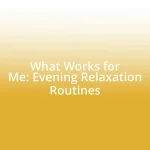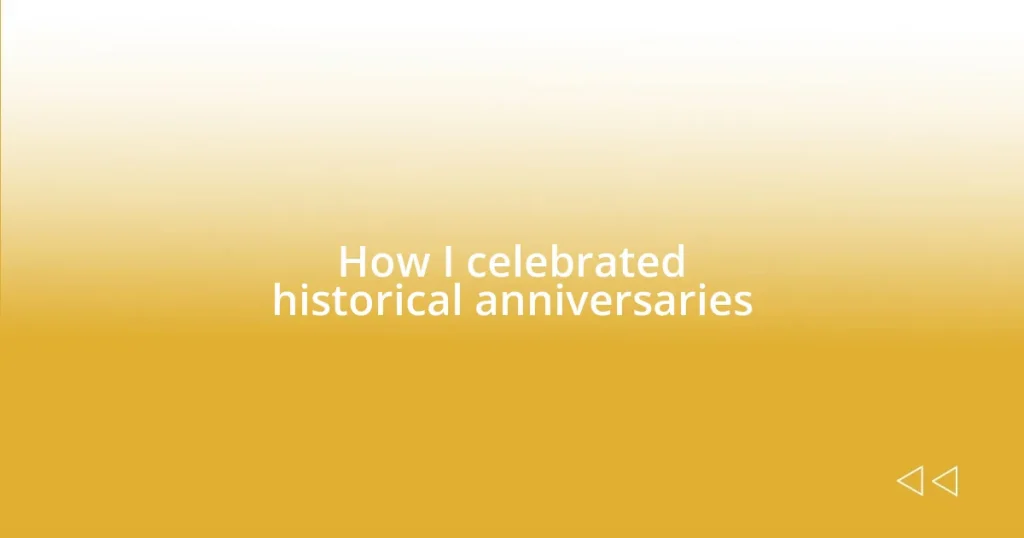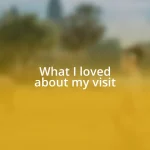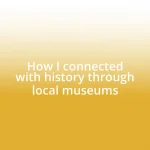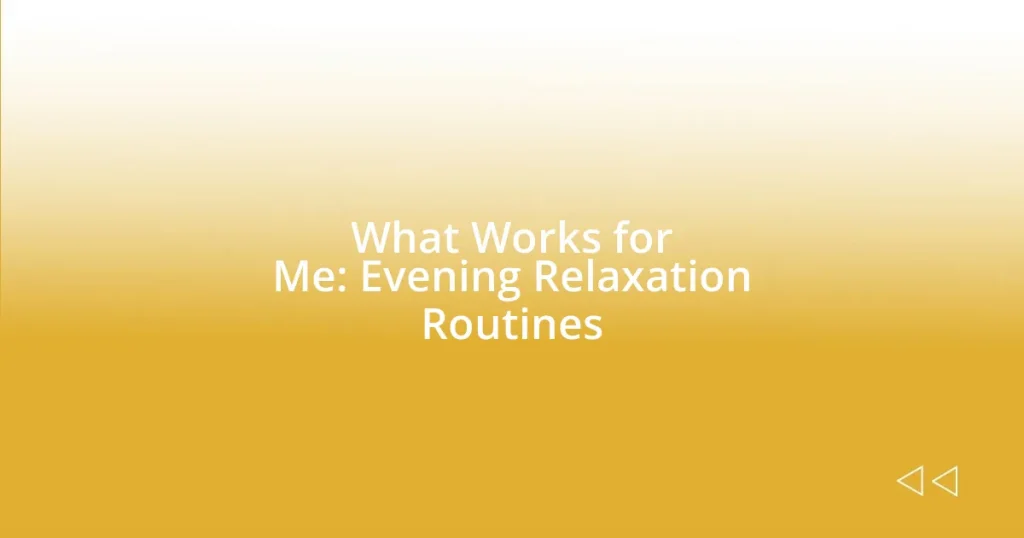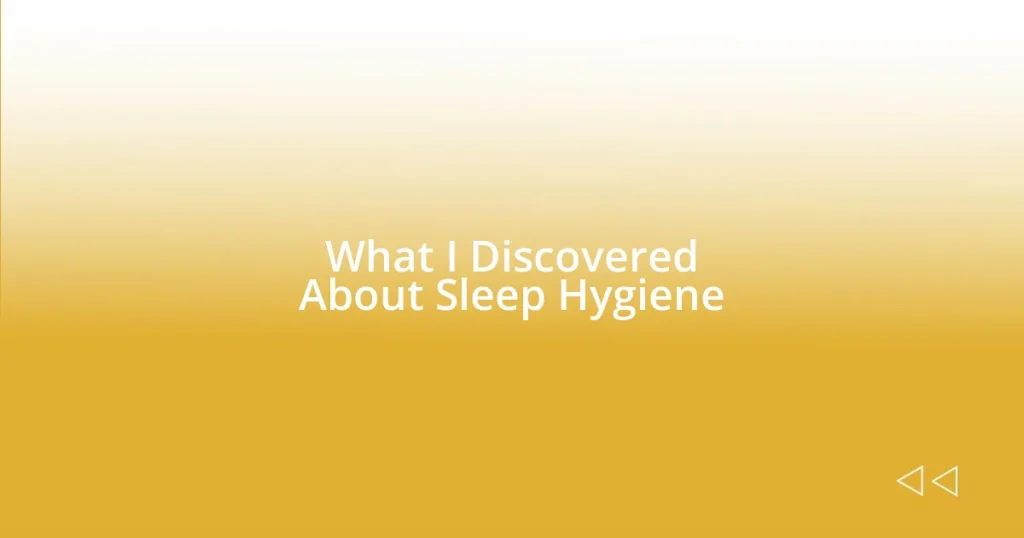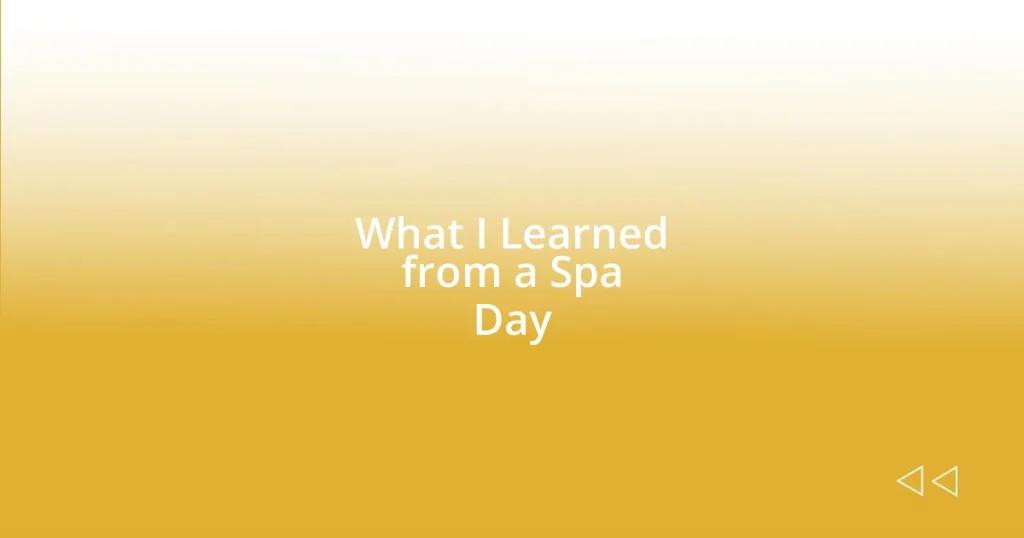Key takeaways:
- Historical anniversaries connect us to our shared past, evoking emotions and fostering community engagement.
- Celebrating these events educates younger generations and encourages discussions about values and social change.
- Thoughtful planning, including collaboration and considering audience preferences, enhances the significance of the celebrations.
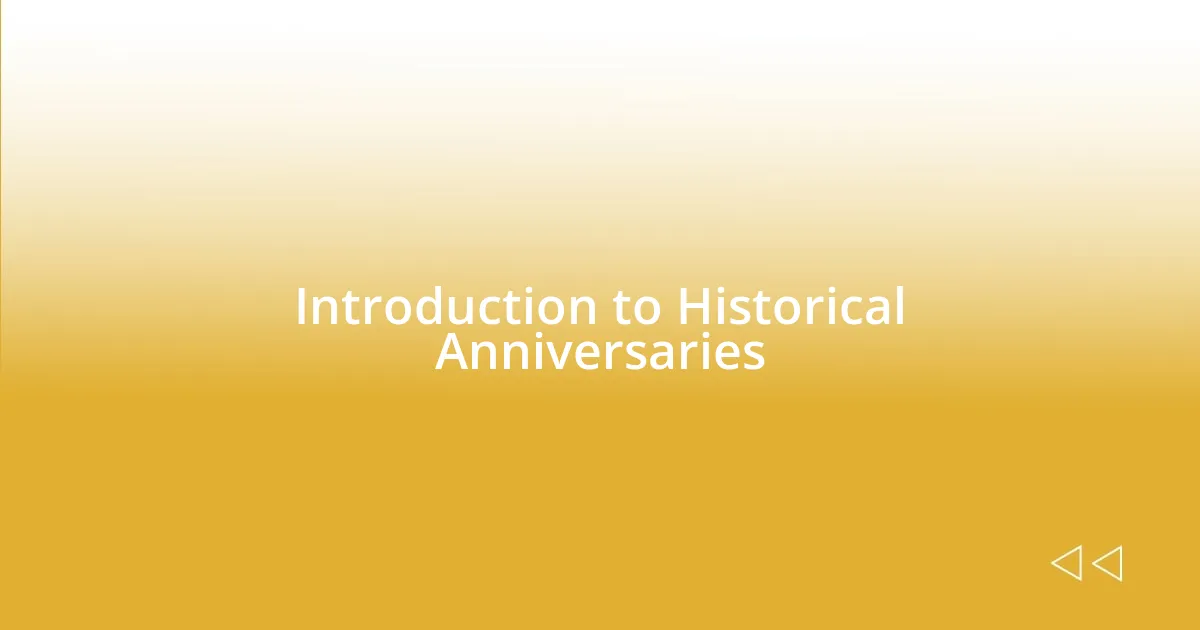
Introduction to Historical Anniversaries
Historical anniversaries are not just dates on a calendar; they are moments that allow us to reconnect with our shared past. Reflecting on these milestones can evoke a whirlwind of emotions, from pride and nostalgia to somber remembrance. Have you ever found yourself pausing on an anniversary, considering how it has shaped your life or community? I certainly have.
For me, remembering significant events often stirs feelings that root deeply in my identity. I still recall the joy and excitement I felt celebrating the anniversary of a local landmark—an old library—being saved from demolition. It was during this celebration that I truly appreciated the power of history in shaping our narratives. These moments remind us that the past isn’t just something to be studied; it’s a living part of us that can inspire action and foster connections.
As we observe various historical anniversaries, each one tells a story waiting to be explored. Whether it’s a revolution, an invention, or a monumental achievement, reminiscing about these events can encourage us to think about their relevance today. How do you think these anniversaries influence your understanding of the world? For me, they provide a lens through which to view contemporary issues, making history feel less distant and more woven into the fabric of our daily lives.
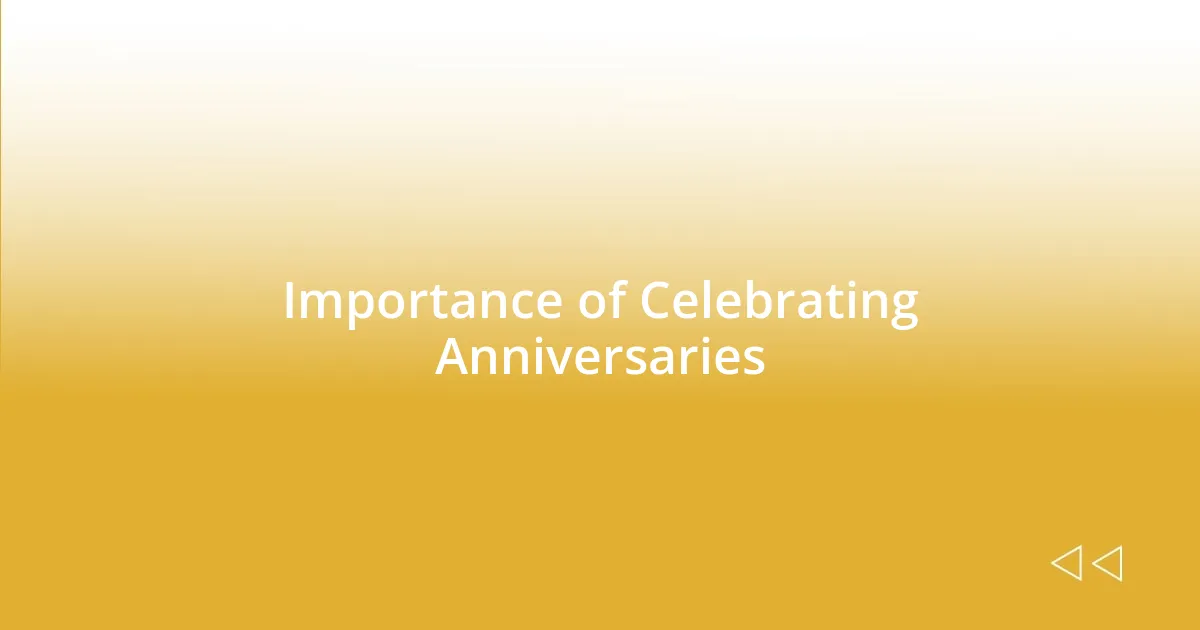
Importance of Celebrating Anniversaries
Celebrating anniversaries holds a profound importance in our lives. They serve as reminders of the principles and struggles that have shaped us, stirring emotions that can resonate through generations. I remember attending a commemorative event for a historical civil rights march; witnessing the passion of speakers moved me deeply. This experience solidified my belief that acknowledging our history fosters a sense of unity and purpose in addressing contemporary challenges.
- Anniversaries provide opportunities to educate younger generations about significant events.
- They foster community engagement and pride, creating connections among diverse groups.
- Celebrating these milestones often reignites conversations about values and lessons learned.
- They can motivate proactive actions toward social change, inspired by the past.
- Personally reflecting on these moments can lead to greater self-awareness and appreciation for progress made.
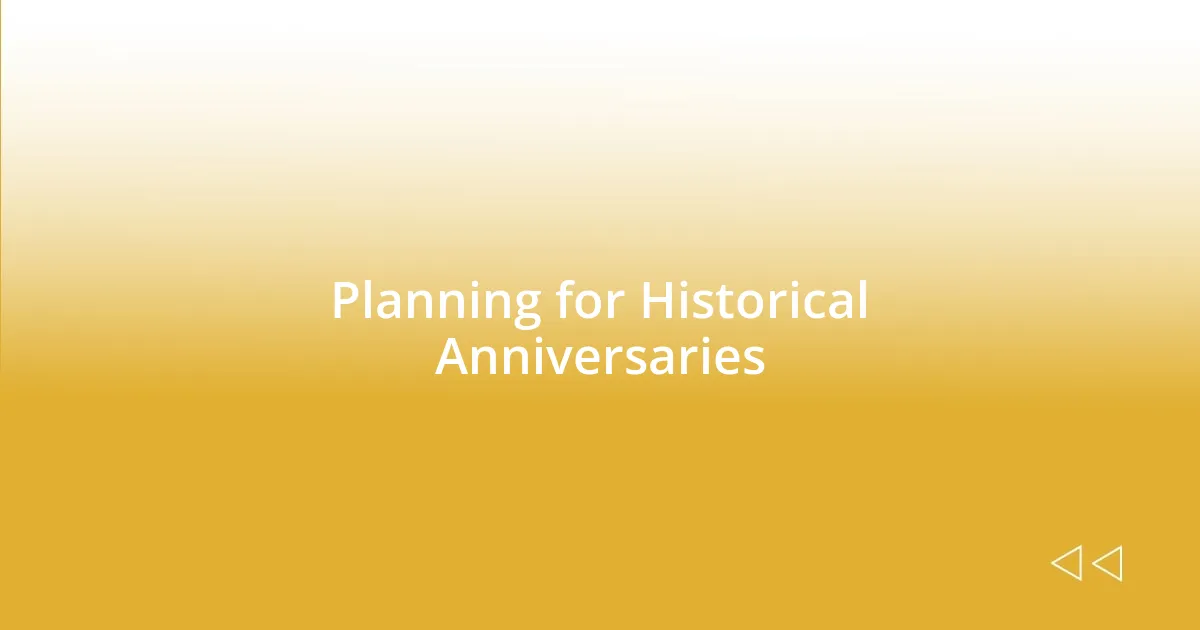
Planning for Historical Anniversaries
Planning for historical anniversaries requires a thoughtful approach to ensure that the significance of the event resonates with those involved. I find that outlining key goals is vital. For instance, are you aiming to inspire community participation, educate attendees, or simply celebrate? Once I set these goals, I can tailor activities and messaging that align with the event’s history, making it more impactful.
Then comes the logistics, which can be daunting but also exciting. I’ve often relied on collaboration, like working with local historians or schools to structure an event. Engaging those who share a passion for the subject can lead to enriching discussions and activities. It’s the small details, like arranging for a local band to perform songs from that era, that can create a vibrant atmosphere and allow attendees to immerse themselves in the celebration.
Finally, assessing the right time and format is crucial. Whether hosting an intimate gathering or a larger public celebration, I always consider the audience’s preferences. For instance, outdoor festivals attract families, whereas seminars may appeal more to students and education enthusiasts. A well-thought-out approach can make a historical anniversary not just a date to remember but an experience to cherish.
| Key Considerations | Examples |
|---|---|
| Goals | Educate, inspire community, celebrate |
| Collaboration | Involve local historians, schools, or cultural groups |
| Event Format | Outdoor festival, seminar, or intimate gathering |
| Logistics | Venue selection, safety preparations, activity planning |
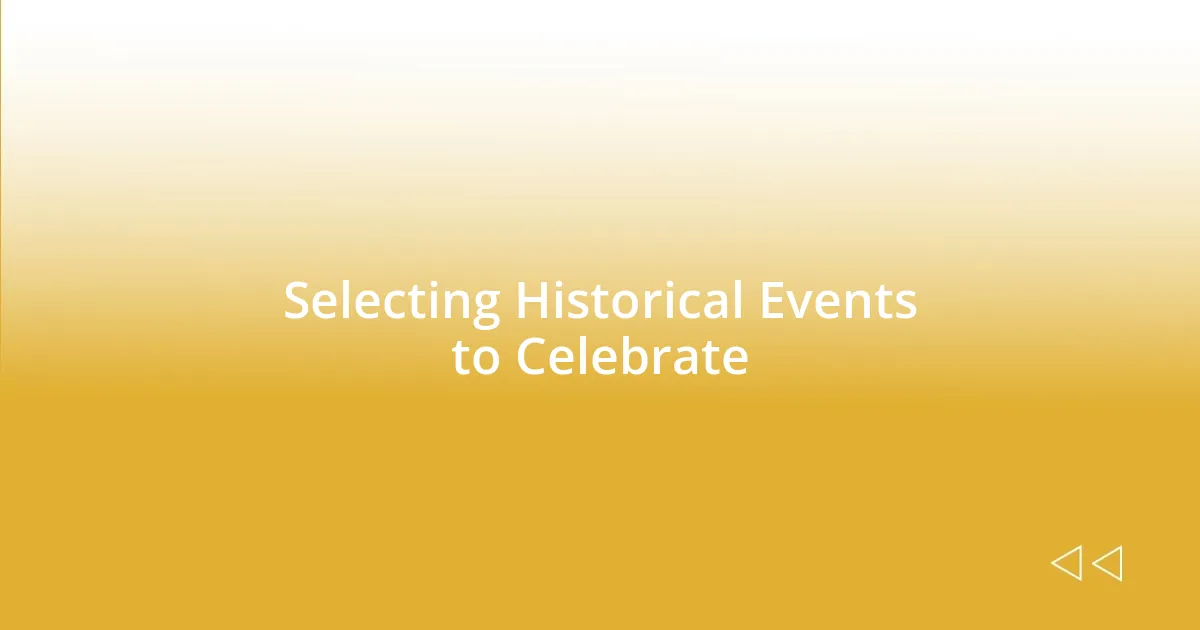
Selecting Historical Events to Celebrate
Selecting a historical event to celebrate can feel overwhelming at first, but I love to narrow down my choices by considering the events that have genuinely impacted society. For instance, when I debated whether to commemorate a famous speech or a groundbreaking civil rights march, I reflected on which event sparked more meaningful conversations in my community. I often ask myself, which anniversary resonates most with today’s social issues?
Once I’ve pinpointed a few significant events, I feel it’s essential to gauge how they align with personal or community narratives. I remember planning a celebration for a local achievement in women’s suffrage and being surprised by the richness of stories that emerged from attendees. It made me realize that incorporating local stories not only adds depth but also fosters connections among participants. After all, doesn’t the best celebration come from shared experiences?
As I dive deeper into the selection process, I always keep the emotions tied to these historical moments in mind. In my experience, choosing an event that evokes strong feelings can amplify engagement. For example, when I celebrated the anniversary of an influential peace initiative, the heartfelt stories shared by guests about hope and resilience created an atmosphere that brought us closer together. When selecting an event, I find that the emotional weight behind it often leads to a more enriching experience for everyone involved.
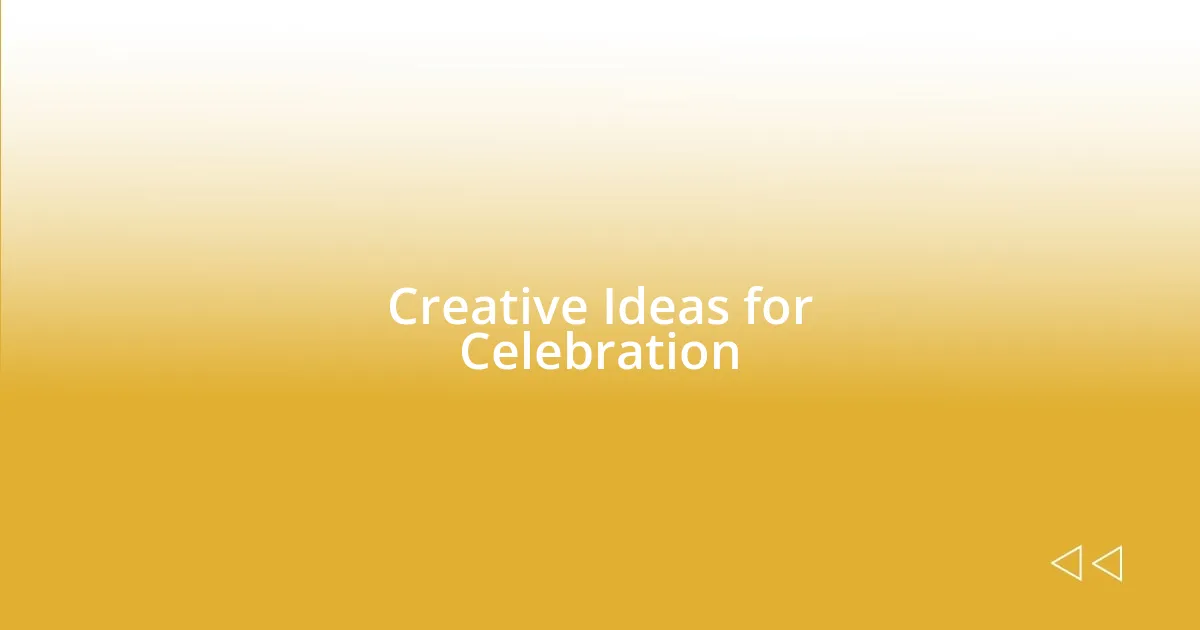
Creative Ideas for Celebration
One of the most engaging ways I’ve celebrated historical anniversaries is through themed storytelling nights. I once hosted an evening where guests shared personal anecdotes related to a particular civil rights event. The atmosphere buzzed with memories and emotions; hearing how the movement influenced their lives turned the night into a vibrant tapestry of shared history. Isn’t it amazing how personal stories can connect us to larger narratives?
Another idea that I love is organizing interactive workshops that reflect the historical event being celebrated. For instance, during the anniversary of a significant cultural festival, we held cooking classes featuring dishes native to the era. Participants loved learning the history behind each recipe, and it created a lively discussion about cultural heritage. Have you ever considered how food can be such a powerful link to our past?
Lastly, art exhibitions can be a fantastic way to celebrate history. A few years ago, I collaborated with local artists to create artwork inspired by a pivotal moment in our town’s history. Each piece told a story and sparked meaningful conversations among viewers. I found that when art evokes memories, it captivates hearts while preserving history for future generations. Isn’t it incredible how creativity can breathe life into the past?
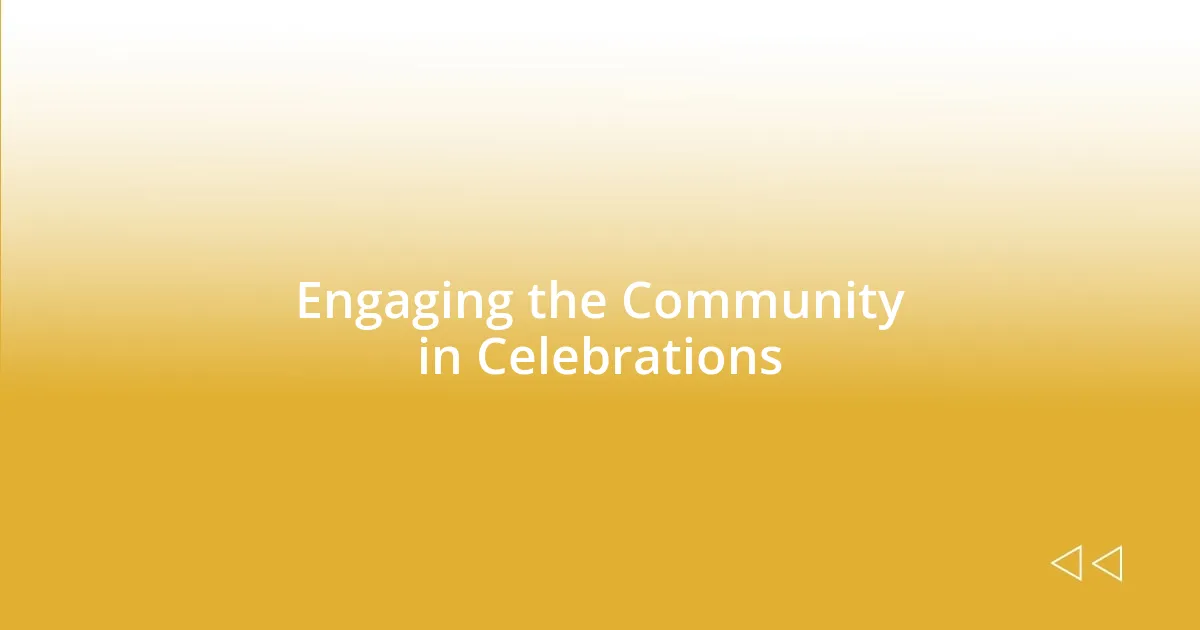
Engaging the Community in Celebrations
Engaging the community during historical celebrations can turn a simple observance into a collective experience that resonates deeply. For instance, at one celebration, I invited local musicians to perform songs from the era we were commemorating. The atmosphere shifted dramatically as familiar tunes transported attendees back in time, sparking conversations about their own memories tied to those songs. Isn’t it remarkable how music can bridge generations and evoke shared memories?
Another approach I’ve found effective is facilitating community discussions or panels with local historians or elders who lived through significant events. One time, I organized a panel for the anniversary of a landmark civil rights event, and the insights shared struck a chord with attendees of all ages. It was incredible to see how stories from the past ignited discussions about current issues, reminding us that history isn’t just a collection of dates; it’s a living dialogue that shapes our present.
I also love incorporating volunteer activities throughout the celebration. For example, during a recognition of the anniversary of a local environmental movement, we organized a cleanup event in the community park. Not only did participants learn about the historical context of the movement, but they also shared stories and built connections while making a tangible impact. How fulfilling is it to celebrate history by also nurturing the community that lives it?
